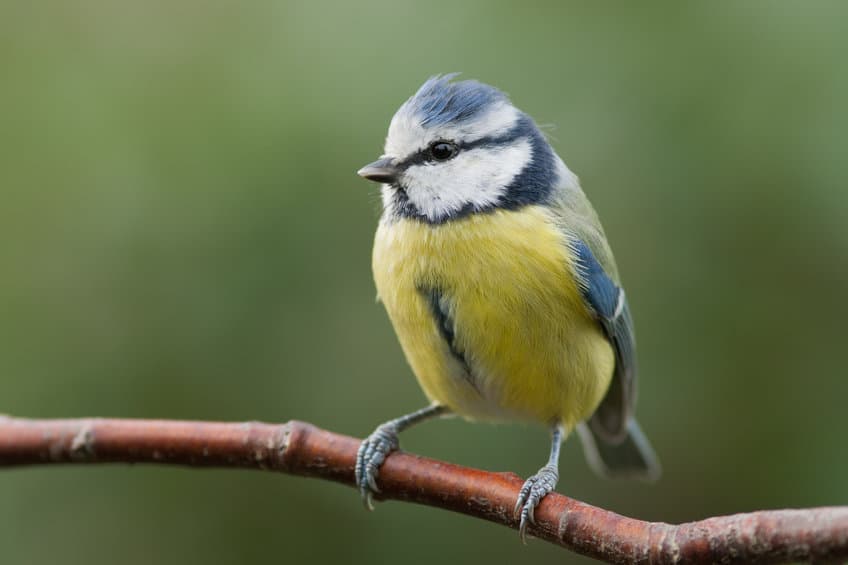By John Salak –
Climate change is shifting the environmental landscape in all sorts of ways. Temperatures are rising, ice caps are melting, ocean currents are changing, weather patterns are shifting and agricultural cycles are fluctuating—just to name a handful of consequences.
Now, some animals are also reacting to the ongoing environmental upheaval by rearranging their migratory patterns and even shape shifting. Australia bird researcher Sara Ryding, in fact, reported recently that some “warm-blooded” animals are actually remaking their bodies. This fast-track evolution is leading to larger beaks, leg, and ears to better regulate their body temperatures as temperatures rise.
Whether these changes and migratory shifts are actually helping animals thrive or even survive is still uncertain. But these animal responses may provide insights on how effective humans can adapt to climate change.
“A lot of the time when climate change is discussed in mainstream media, people are asking ‘can humans overcome this?’, or ‘what technology can solve this?’. It’s high time we recognized that animals also have to adapt to these changes, but this is occurring over a far shorter timescale than would have occurred through most of evolutionary time,” reported Ryding, a faculty member of Australia’s Deakin University in Australia. “The climate change that we have created is heaping a whole lot of pressure on them, and while some species will adapt, others will not.”
Since climate change itself is complex, Ryding admitted it is difficult to pinpoint just one cause for the shapeshifting, especially since the changes are occurring across the globe among a wide variety of specifies.
Some changes themselves, like beak size, may seem difficult to notice at first. But these and other changes are real and happening over an incredibly short time in terms of evolutionary developments. She is quick to warn, however, the speedy adaption doesn’t always translate into success.
“Shapeshifting does not mean that animals are coping with climate change and that all is ‘fine,’” Ryding said. “It just means they are evolving to survive it—but we’re not sure what the other ecological consequences of these changes are, or indeed that all species are capable of changing and surviving.”
Others have also noted animal patterns are changing in response to climate change. The warming of the Arctic, for example, has led caribou cows to give birth to their young earlier the usual in what one researcher described as a “change in their internal wiring.”
Just a two-week shift “is a big effect,” noted Mark Hebblewhite, a University of Montana biologist who worked with almost 150 scientists to archive shifts in more than 90 artic animals. “Calving doesn’t change,” Hebblewhite said. “(Cows) don’t decide, ‘Oh, spring’s late this year. I’m going to give birth later.'”
Other adaptions include some golden eagles now arriving at their summer nesting grounds more than a week earlier than normal.
The good news for Hebblewhite is that it appears animals are able to evolve fast enough to keep up with the Artic climate change, which is happening faster there than anywhere else on Earth. Unfortunately, the Arctic’s environment isn’t all changing at the same speed, which is throwing the ability of animal to adapt out of whack.
“This is evolution,” he said of the shifts. “These are just as much evolutionary responses to climate change as environmental changes. We don’t know if that’s good or bad yet.” Unfortunately, Hebblewhite warned that these shifts correspond to a drop in caribou numbers.
If time is not running out for animals, people and the planet, it is certainly speeding up in terms of climate change. The Intergovernmental Panel on Climate Change (IPCC) recently reported that now scientists are observing unprecedented and accelerating changes to the earth entire climate system.
Temperatures are riser faster than ever as are ocean levels in line with the melting of polar ice caps. Other unprecedented changes cited by the IPCC include average rainfalls and devastating flooding increasing in many regions, while other areas witness horrendous droughts. This doesn’t include the warming of the world’s oceans, along with seawater acidification and reduced oxygen levels.
“This report is a reality check,” said IPCC Working Group I Co-Chair Valérie Masson-Delmotte. “We now have a much clearer picture of the past, present and future climate, which is essential for understanding where we are headed, what can be done, and how we can prepare.”
Whether animal adaptation can factor into this equation or even help point the way for a successful human response to climate change remains uncertain.













